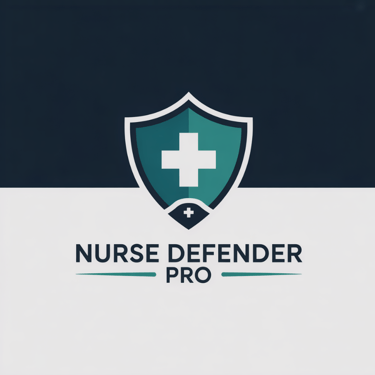Can I Go to Jail for Giving the Wrong Medication? What Nurses Need to Know
While most errors are handled as clinical or disciplinary matters, some cases have escalated into criminal charges and even prison sentences. So the question many nurses are now asking is: can I really go to jail for giving the wrong medication?
9/9/20252 min read


Why Medication Errors Matter
Every year, medication errors affect an estimated 7 million patients in the United States, leading to over 7,000 deaths annually (National Coordinating Council for Medication Error Reporting and Prevention). Errors can occur at any stage—ordering, dispensing, or administering—and nurses are often the final checkpoint.
Hospitals and boards of nursing typically classify errors as:
Near misses – errors caught before harm occurs.
Errors with no harm – medication given but patient not injured.
Errors with harm – patient injury, hospitalization, or death.
While most fall into the first two categories, when harm occurs—especially death—legal consequences rise dramatically.
👉 Read more in our Guide to Medication Error Documentation.
High-Profile Cases of Nurses Going to Jail
Several cases in recent years have made national headlines and placed nurses at the center of criminal investigations:
1. RaDonda Vaught – Tennessee (2019 conviction)
Perhaps the most infamous case, Vaught, a nurse in Tennessee, was convicted of criminally negligent homicide and gross neglect of an impaired adult after administering vecuronium (a paralytic) instead of Versed. The patient died.
She was sentenced to three years of probation (NPR).
This case sent shockwaves through the nursing profession, raising fears that honest mistakes could land nurses in court.
2. Julie Thao – Wisconsin (2006)
Nurse Julie Thao was charged with criminal negligence after mistakenly giving an epidural drug intravenously, resulting in a patient’s death during childbirth.
She accepted a plea deal and avoided jail, but the case showed how prosecutors can pursue nurses for clinical errors (American Journal of Nursing).
3. Kim Hiatt – Washington (2011)
A Seattle nurse gave a 10-fold overdose of calcium chloride that killed an infant. Though she did not face prison, she was fined, disciplined, and eventually lost her career.
Tragically, Hiatt later died by suicide, highlighting the devastating toll of error and criminalization (Seattle Times).
When Do Medication Errors Become Criminal?
Not every error will lead to prosecution. However, nurses may face criminal charges in cases involving:
Gross negligence – ignoring safety protocols or bypassing double checks.
Reckless conduct – using unauthorized overrides, skipping bar-code scanning, or failing to monitor patients.
Impairment – administering medications under the influence of drugs or alcohol.
Cover-ups – altering records, failing to report an error, or misleading investigators.
Boards of Nursing can impose penalties like suspension or license revocation, but prosecutors may also pursue criminally negligent homicide or manslaughter charges if the error results in death.
Protecting Yourself as a Nurse
The best defense is proactive prevention and documentation. Steps to safeguard your license—and your freedom—include:
Always follow the “Five Rights” of medication administration: right patient, right drug, right dose, right route, right time.
Use technology properly: bar-code scanners, electronic medication records, and double-check systems exist for your protection.
Document thoroughly: Accurate, timely charting can protect you in the event of an error.
Report immediately: Transparency reduces risk of criminalization. Cover-ups increase it.
Know your state laws: Boards of Nursing and state statutes vary on how medication errors are classified.
The Bottom Line
Yes, nurses can go to jail for giving the wrong medication, though such cases are rare and usually involve gross negligence or patient death. Still, the fear is real—and justified. With high-profile cases like RaDonda Vaught’s shaping national dialogue, every nurse must treat medication safety as both a clinical duty and a legal responsibility.
Your license, your livelihood, and even your freedom can hinge on the decisions you make at the bedside. By using proper safeguards and keeping your mental health forms, medication consents, and documentation templates up to date, you can protect yourself, your patients, and your practice. Protect your nursing license with Nurse Defender Pro—customizable board letters, investigation guidance, and 100+ pages of proven defense strategies. Stay compliant, reduce risk, and face any Board of Nursing challenge with confidence.
